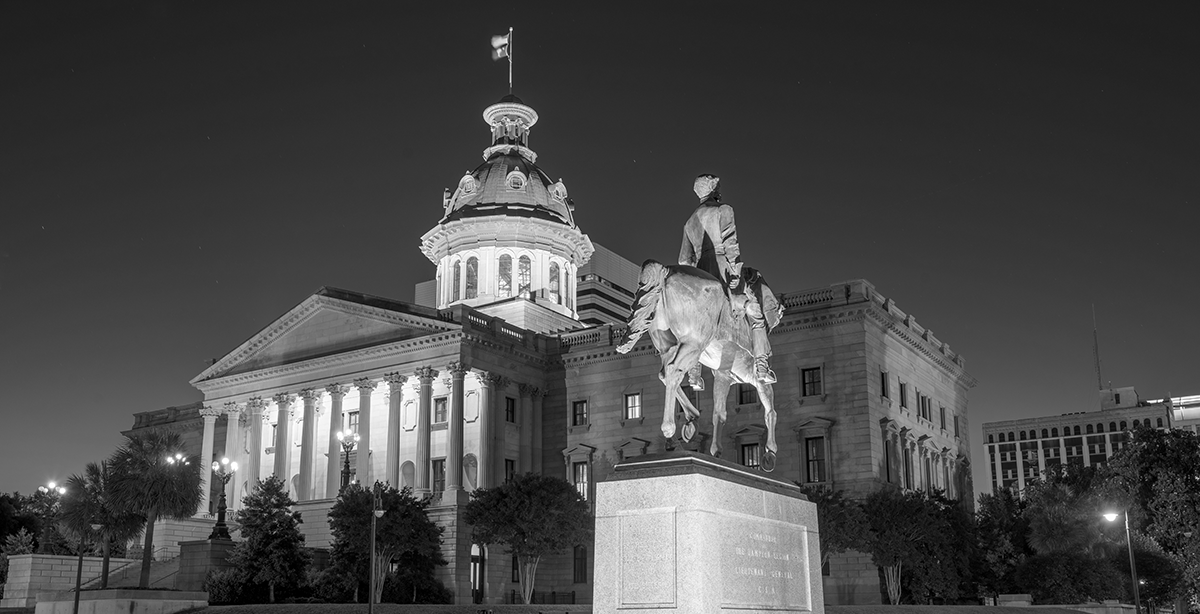The 126th South Carolina General Assembly, comprising 170 members, convened on January 14, 2025, to begin its 2025-2026 legislative session. Prior to the session's commencement, Speaker Murrell Smith (R) secured reelection, overcoming a challenge from Representative Bill Chumley (R) of the House Freedom Caucus. This session saw the arrival of 32 new lawmakers to the General Assembly. A notable milestone occurred on January 29, when Governor Henry McMaster (R) became South Carolina's longest-serving governor.
During the session, 94 bills were signed into law. Only one bill faced a gubernatorial veto, which was subsequently overridden by a unanimous vote in both the Senate and House. Two additional bills are currently pending veto decisions. Although the volume of bills passed was lower compared to previous sessions, the complexity of the legislation was significant. This was particularly evident given the Republican supermajorities in both the House and Senate, a historical first in over a century, which often led to extensive floor debates and negotiations to finalize legislation.
Health Care
SB 2 establishes the Department of Behavioral Health and Developmental Disabilities to bring together the Office of Intellectual Disabilities, the Office of Mental Health, and the Office of Substance Abuse Services. This new consolidated department will be responsible for creating a cohesive service plan, developing a comprehensive budget, and acquiring technology to improve coordination and accountability. Its key duties also include mandating data sharing, consolidating administrative services, ensuring compliance with Department of Administration directives, and engaging in contracts with public and private partners. The reason for this consolidation is to consolidate healthcare resources as South Carolina is on the upper end of healthcare spending in the nation.
The bill also updates procedures for isolation, quarantine, and vaccination protocols during public health emergencies. This measure was signed by the governor on April 28. According to the Governor, the law is, “an enormous, historic step forward, a great step forward, for the people of our state to make things better and better.”
Alcohol
Concerns regarding escalating liquor liability insurance costs were addressed during this legislative session. These issues stem from a 2017 state law requiring establishments serving alcohol for on-premises consumption after 5 PM to carry a minimum of $1 million in liquor liability insurance. This requirement resulted in insurers exiting the South Carolina market, leading to increased rates for many businesses.
Signed into law on May 12, HB 3430 introduces "liquor liability risk mitigation" provisions, offering establishments several avenues to reduce their required insurance coverage. These halting the sale of alcohol by midnight, implementing alcohol server training courses for employees, maintaining less than 40% of total sales from alcohol, and utilizing digital identification scanners for alcohol service between midnight and 4 AM. This new law aims to stabilize the liquor liability insurance market in South Carolina, providing businesses with concrete strategies to manage their insurance obligations. This measure takes effect January 1, 2026.
Budget
On May 28, the House and Senate adopted a compromise budget of $14.7 billion that was agreed upon through a Conference Committee. South Carolina runs on an annual budget, meaning that the General Assembly must pass a budget every year. On June 3, Governor Henry McMaster (R) signed the budget into law while vetoing several line items within the budget. Provisions within the enacted budget include, among other things: requiring school districts to implement policy that prohibits access to electronic communication devices by students; an appropriation of $20 million to the Department of Education for school safety upgrades; an appropriation of $10 million for the Commission on Higher Education Nursing Initiative; requiring the Director of Health and Human Services to withhold funding to abortion providers to the fullest extent allowed under the law; and requiring the Office of Regulatory Staff to evaluate the feasibility of converting retiring coal plants to biomass plants.
Wrap Up
South Carolina adjourned on May 8 and is expected to reconvene on January 13, 2026. Being the first year of a two-year session, any legislation that did not pass in both chambers can still be taken up in the new year. South Carolina is not expected to reconvene for a special session.
